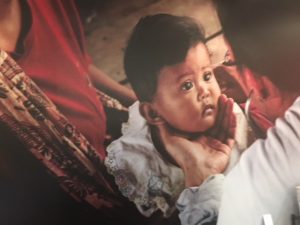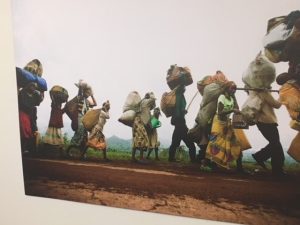Better Than Most is a regular feature of The Business of Giving, examining the best places to work among social good businesses and nonprofit organizations.
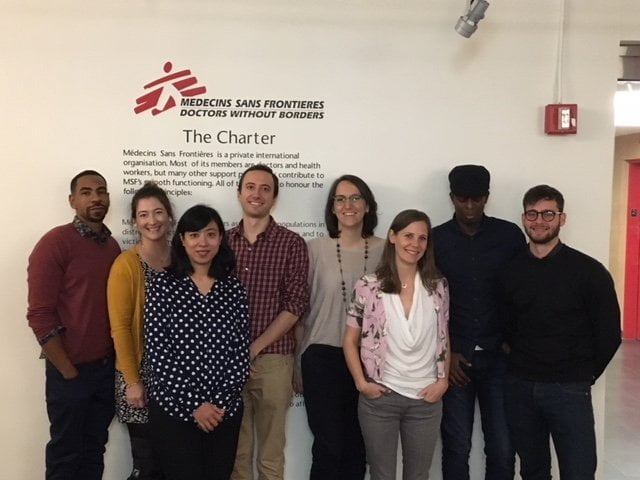
Doctors Without Borders Staff
Denver: Today, you will be going to the US headquarters of Médecins Sans Frontières or Doctors Without Borders as we know it here. They help people worldwide where the need is greatest delivering emergency medical aid to people affected by conflict, epidemics, disasters and exclusion from healthcare. We gathered a great group of people to tell you what it’s like to work at Doctors Without Borders.
Tim: I would describe the corporate culture of Doctors Without Borders as being very participatory. And I find that one thing that we can do is actually be a part of the association that is the group that oversees our organization and while we can’t vote in that, we can participate in discussions about our strategic plan about really core issues and we have debates and this is something that I appreciate a lot, that we are given that opportunity to do that along with our field workers who come back from the field and bring all the passion and enthusiasm in doing that kind of work. So, it’s very participatory.
Gabrielle: I think Doctors Without Borders has a culture of transparency because our board directors meetings are open and open to all staff including interns as well as our association members. Association members are actually the ones who elect our board directors every year. So, it is important to keep them engaged and informed of important decisions. And I think it is quite unique because from other nonprofits I worked at, they’re normally not open to all staff. So, I think this is very critical part of our culture that all staff can surely take advantage of. And because there are very interesting discussions at all the board meetings including operation discussions, strategic plan discussions and also just what kind of direction you want to take as we do to our social mission and we have to uphold our principles. And I think because of this unique aspect of our culture, everybody at MSF, including office staff and field staff have a unique opportunity to be really stay informed and engaged and know that their voice can be heard if they can participate in this meetings. Everyone has an opportunity to speak up which I think is very unique to MSF.
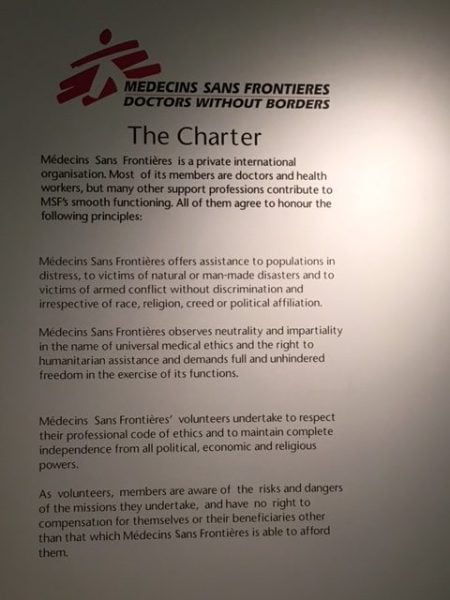
Anna: I think it is really true that we challenge ourselves and we challenge our staff both here and the New York office but in all of our field sites as well to really stay flexible and responsive to whatever comes up. And that’s what allows us to respond to emergencies in the field, both by starting new medical activities as needed or by coming up with ways in headquarters to support that reactivity in that response that really defines us as an organization. I think we all are pushing ourselves and challenging ourselves to keep flexible and to be able to step outside of our comfort zone and outside of our normal roles when needed in order to respond to new things really at a moment’s notice.
Tim: With regards to technology, technology is really something that facilitates our communication both externally and internally. And internally, in terms of our culture, it’s culture of debate. We have a portal where people make arguments about different issues that they are facing in the field. And it is a very valuable way for people to express their perspectives and to really iron out what it is that we are doing to clarify our mission and to bring the passion that they bring from the field to those debates and then we can participate in that as office staff as well. So, that’s a very valuable intranet tool that we have.
Brice: When you go on the field, you can observe that people living together with different nationalities, same house, same daily routine and everything. So, from the very start, you start learning to leave together incorporating all those differences, focusing on the work to be done. So, same thing at the HQ. We have so many different nationalities and it’s huge and diverse group come together as one focusing on our patient, our duties, our care and everything. So, it’s one of the strongest assets of MSF is these huge amount of different life and work experiences that is built together and that is really contributing to us moving fast and keep running over time.
Allison: So in terms of professional development at Doctors Without Borders, there are opportunities that are presented to each of us that may seem even outside of our everyday role but for example, our history comes from France and we were founded in France in the early 70’s and we’re all connected in some way. And so, we are offered French classes. We have a partnership with the Alliance Française here in New York and instructors from FIAF come to our office and we’re encouraged to participate in classes that not only helps our everyday understanding of MSF but also connects us to that history of the organization. And it’s a great professional development opportunity that we have.
Henry: I think when you walk through the doors of MSF, you can tell that there’s a lot of movement. People are coming in and out, boxes are being packed or unpacked. This extends throughout your day-to-day working environment I think as well. You might have a meeting with somebody but all of a sudden, they have to go to the field to Uganda to check up on some medical programs there. So instead, you have to problem solve and be flexible and maybe ask somebody else that you don’t know but works in the same department. And I think it is this sort of attitude and this flow that you need to have with MSF that things are moving and so you have to move as well and that creates a lot of opportunities to meet people, to learn something new but it requires a certain individual to say, “Hey, this is what we need to get done right now. Where do I need to go to get this done?”
Anna: We provide a lot of medical care in a lot of very diverse and also very extreme circumstances around the world and one of our key priority areas is to give that voice to our patients and to tell their story, to bear witness on their behalf to what they are experiencing and what the health consequences are of the circumstances in which they find themselves. And one way that we do that that I like, that’s sort of recent thing, I think, is through our Instagram account. I personally really like this platform for sharing stories because we can show an image or images of one of our patients and put their voice with that image and allow them to say what they are experiencing and it’s almost in real-time. We can do these with crises of the moment that I think really puts a face to those crises and can allow people to understand what individual patients are going through when they live in a conflict area, when they live in a place that’s been hit by a natural disaster, when they’ve been displaced and forced to leave their home. It’s a really powerful thing that we can offer our patients as well as to give them that voice.
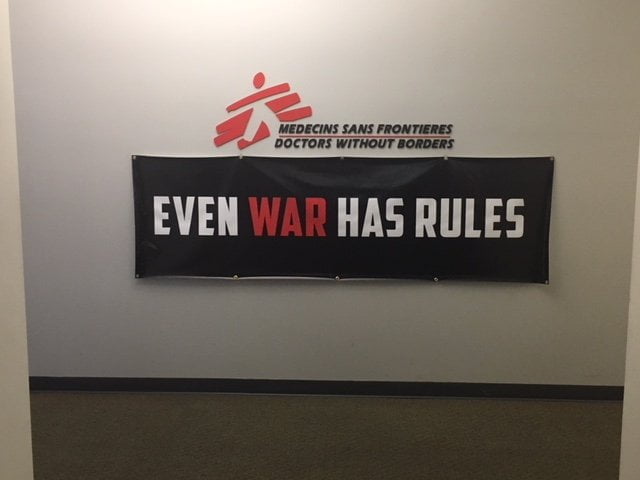
Christine: And a few months back, there was a leak in the bathroom and I think we have a very do it yourself mentality where one of the program assistants just ran upstairs to IT department and grabbed their toolbox, came back downstairs because the building management was a little bit too slow at responding and dispatching someone to come fix the leak and we couldn’t stand the thought of wasting so much water. So she proceeded to watch a YouTube video and then cut the water temporarily until the person came to fix the leak. And then when the person arrived, she stayed by his side to see how he was doing it because the next time this happens, she’ll be able to do it herself, not just temporarily but to fix it for life. So, I think that’s very emblematic of the approach people have here.
Melanie: I wanted to talk about when do you know that you- when do you feel that you belong to MSF? This is a very hard question because it’s already done when realize it. When I was hired, I remember someone saying, the first day I arrived for first training before they brought me to the field, one person said, “Okay. So now you are part of MSF. So, basically you can go to any office and talk to anybody and you are as valuable as they are even though they have been there for maybe 10 years and you just arrived. But that’s how it works. Now you’re part of MSF.”
Robert: I compare MSF USA to working in a newsroom when I said I worked for eight to nine companies where in many cases, you can hear a pin drop. That doesn’t mean that people aren’t being productive but the energy here is like nothing I’ve experienced where people are moving at a fast pace. People are having conversations, impromptu and where they can, and these aren’t conversations about a TV show. These are conversations about their work. So, I like that energy. It’s very stimulating. I thrive off of that energy. You actually have to really pay attention when you walk around corners here because people are in constant motion, again trying to get things done and achieve whatever task they have at hand.
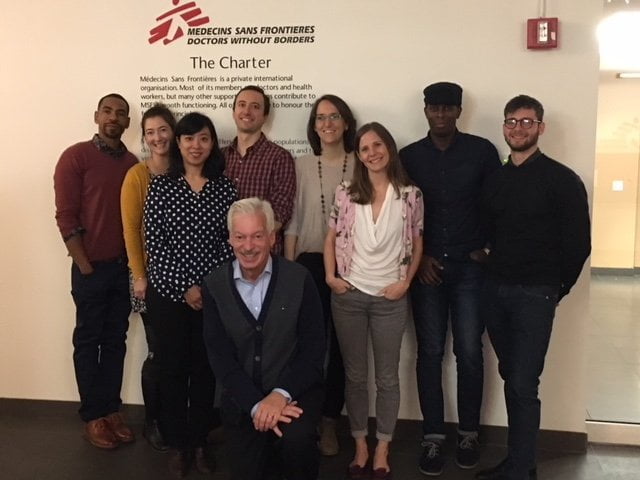
Denver: I wanna thank Jess Brown for organizing my visit and to all those who participated in this piece: Robert Crenshaw, Melanie Barthezeme, Brice Kana, Gabrielle Wang, Henry Elliman, Anna Freeman, Christine Martin, Tim Shenk, and Allison Cody.
If you want to listen to this again, maybe read the transcript or see pictures of the participants in the offices, you can do all that by visiting denver-frederick.com and while you’re there, we’ll put up a link to my full interview with Jason Cone, the Executive Director of Doctors Without Borders.
The Business of Giving can be heard every Sunday evening between 6:00 p.m. and 7:00 p.m. Eastern on AM 970 The Answer in New York and on iHeartRadio. You can follow us @bizofgive on Twitter, @bizofgive on Instagram and at http://www.facebook.com/BusinessOfGiving


